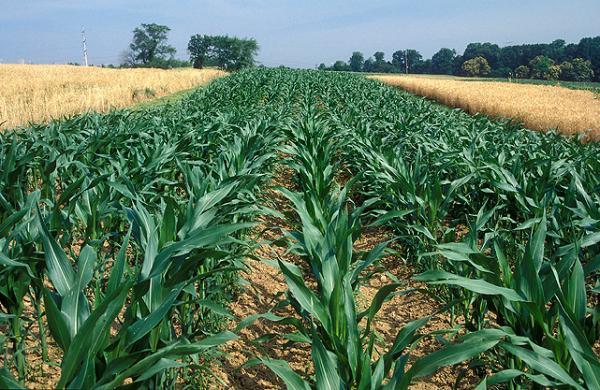
Agricultural News
CEI Claims Activists Falsely Sow Seeds of Doubt on Farmer Assurance Provision
Thu, 28 Mar 2013 12:22:20 CDT

During negotiations on the continuing budget resolution last weekend, farm state senators inserted a rider they call the "Farmer Assurance Provision," which critics have derided as the "Monsanto Protection Act." The provision codifies existing USDA practices and elements of a 2010 Supreme Court ruling that lower courts should not automatically prohibit the planting of biotech crop varieties, or the harvest and sale of biotech crops already planted, when their commercial approval is revoked for procedural reasons. Activists have mischaracterized the rider's actual effect and have called on Congress to repeal it. Gregory Conko, a Senior Fellow at the Competitive Enterprise Institute, issued the following statement this morning:
For close to a decade, activists have used nuisance litigation to overturn the approval of biotech crops on the grounds that the U.S. Department of Agriculture improperly documented its evaluation of potentially negative "environmental" effects. Because the National Environmental Policy Act requires agencies to consider and fully document not only ecological impacts, but also any possible economic, social, cultural, historic and aesthetic effects, it offers fertile ground for bad-faith, obstructionist lawsuits for what amounts to mere paperwork violations.
In the five NEPA lawsuits against biotech crop approvals filed to date, not a single harm to consumers or the environment were even alleged, let alone proved. So, activist claims that the rider lets USDA ignore a court finding of environmental harm are patently false. In fact, the rider only authorizes USDA to grant "temporary" permission for biotech crops to be planted, and only "subject to necessary and appropriate conditions - and requirements, including measures designed to mitigate or minimize potential adverse environmental effects, if any," until the USDA's paperwork irregularities have been corrected.
Furthermore, the rider does not give USDA any new authority, since the department previously had issued exactly the same kind of temporary permits for farmers to grow biotech seeds they already had purchased. And in the 2010 case Monsanto v. Geertson Seed Farms, the Supreme Court ruled that courts should not automatically revoke a biotech crop's approval when NEPA violations are found. So, all the Farmer Assurance rider does is codify existing case law and agency practice.
Claims that this provision was slipped into the continuing resolution surreptitiously are also misleading. Several proposals to address the nuisance litigation problem were debated during last year's Farm Bill negotiations. Disagreements over agricultural subsidies kept Congress from enacting a Farm Bill. But at that time, Members had agreed to a different provision giving farmers more expansive rights than the Farmer Assurance Provision does.
The big winners here will be farmers who plant USDA-approved biotech crops and consumers who benefit from lower prices and improved environmental stewardship. They no longer will be at risk of losing hundreds of millions of dollars when biotech crop approvals are overturned. Given how abusive NEPA litigation has gotten and how disruptive these rulings are to farmers and the American food chain, enacting the Farmer Assurance Provision is the very least Congress should do to protect American agriculture.
Globally, farmers who plant biotech crops reap an estimated $14 billion in economic benefits each year. Biotech crops also reduce pesticide spraying by roughly nine percent annually, while reducing farm runoff and soil erosion. And their higher per-acre productivity means farmers can grow more food on less land, leaving more unspoiled land for nature. Ironically, because the NEPA requires purely procedural obligations, courts are not permitted to consider the fact that biotech crop varieties have clear benefits for farmers, consumers and the natural environment.
WebReadyTM Powered by WireReady® NSI
Top Agricultural News
More Headlines...



















